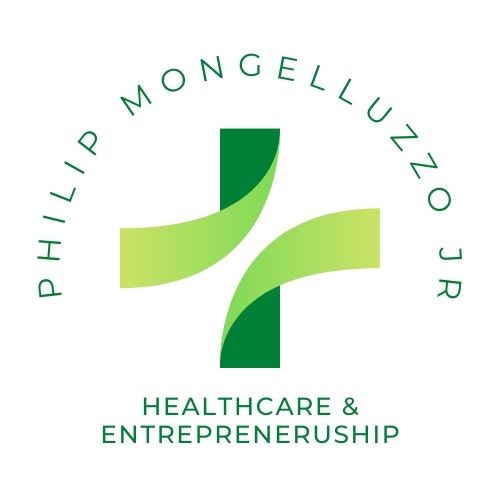In a world increasingly dominated by conventional medicine, holistic approaches to healing have gained recognition for their comprehensive and patient-centered focus. Integrative medicine combines traditional medical practices with holistic therapies to address the physical symptoms and mental, emotional, and spiritual aspects of health.
Understanding Integrative Medicine
Integrative medicine, sometimes called complementary and alternative medicine (CAM), is an approach to healthcare that combines conventional medical treatments with holistic therapies. The fundamental principle behind integrative medicine is to treat the whole person, recognizing that various factors, including genetics, lifestyle, emotions, and environment, influence health and well-being.
Holistic Approaches in Integrative Medicine
- Nutrition and Diet: Holistic nutrition focuses on the importance of food as medicine. Integrative medicine practitioners assess patients’ dietary habits and nutritional status to develop personalized diets that support optimal health. Nutritional therapy can be vital in managing chronic conditions such as diabetes and cardiovascular disease.
- Mind-Body Medicine: This approach emphasizes the connection between mental and physical health. Mindfulness meditation, yoga, and guided imagery are examples of mind-body practices that reduce stress, improve mental clarity, and enhance emotional well-being.
- Acupuncture and Traditional Chinese Medicine: Acupuncture is an ancient practice that involves inserting thin needles into specific points on the body to promote balance and healing. Traditional Chinese Medicine (TCM) incorporates acupuncture, herbal medicine, and lifestyle recommendations to address various health concerns.
- Chiropractic Care: Chiropractic care focuses on the musculoskeletal system and the spine’s role in overall health. Chiropractors use spinal adjustments and manual manipulation to alleviate pain, improve mobility, and enhance well-being.
- Herbal Medicine: Herbal remedies have been used for centuries to address various health issues. Herbalists use plant-based medicines to support the body’s natural healing processes, often with fewer side effects than pharmaceutical drugs.
- Energy Healing: Energy healing modalities, such as Reiki and Qi Gong, work on the principle that energy flows through the body and influences health. Practitioners use techniques to balance and clear energy blockages, promoting physical and emotional healing.
- Homeopathy: Homeopathy is a holistic system of medicine that uses highly diluted substances to stimulate the body’s innate healing abilities. Homeopathic remedies are tailored to an individual’s specific symptoms and constitution.
- Ayurveda: Ayurvedic medicine is an ancient system from India that emphasizes balancing the body’s three doshas (Vata, Pitta, and Kapha) to promote health and prevent disease. Ayurvedic treatments often include dietary changes, herbal remedies, and lifestyle modifications.
Benefits of Holistic Approaches in Integrative Medicine
- Personalized Care: Holistic approaches consider the individuality of each patient, tailoring treatments to their unique needs and circumstances.
- Improved Well-Being: Integrative medicine aims to enhance not only physical health but also mental, emotional, and spiritual well-being. Patients often report a higher quality of life and reduced stress levels.
- Reduced Side Effects: Many holistic therapies have fewer side effects than pharmaceutical drugs, making them suitable for individuals looking for gentler treatment options.
- Preventive Focus: Integrative medicine strongly emphasizes prevention, helping patients adopt healthier lifestyles and avoid future health issues.
- Patient Empowerment: Integrative medicine encourages patients to participate in their healing journey actively. Patients are educated about their health and empowered to make informed decisions.
Challenges and Considerations
While holistic approaches in integrative medicine offer numerous benefits, it’s essential to approach them with an open mind and consider certain factors:
- Scientific Evidence: Some holistic therapies may lack robust scientific evidence supporting their effectiveness. It’s essential to discuss treatment options with a qualified healthcare provider and ensure that the chosen therapies align with your specific health goals.
- Integration with Conventional Medicine: Holistic approaches should complement, not replace, conventional medical treatments. Communicating openly with healthcare providers about any holistic therapies you are considering to ensure they are safe and suitable for your condition is crucial.
- Individual Variability: Holistic approaches may work differently for each person. What works for one individual may be less effective for another. Therefore, monitoring your progress and adjusting treatments as needed is essential.
Conclusion
Holistic approaches to integrative medicine recognize the importance of treating the whole person, addressing physical, mental, emotional, and spiritual aspects of health. These approaches offer personalized care, improve well-being, and often have fewer side effects than conventional treatments. However, it’s crucial to approach holistic therapies with a balanced perspective, integrating them with evidence-based conventional medicine when necessary. Ultimately, integrative medicine aims to empower individuals to take charge of their health and achieve a higher quality of life through a comprehensive and holistic approach to healing.

